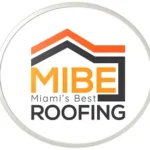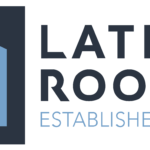The Importance of Roof Certification in Miami: What it Means for Homeowners and Homebuyers
Understanding the Basics of Roof Certification
As a homeowner or homebuyer in Miami, it’s essential to understand the importance of roof certification. A certified roof is one that has been inspected and tested to ensure it meets certain standards and is safe for occupancy. In Miami, where the climate is hot and humid, a certified roof is crucial to protect against damage from rain, wind, and sun exposure. The certification process involves a thorough inspection of the roof, including its condition, material, and installation.
Benefits of Roof Certification for Homeowners
For homeowners, roof certification offers numerous benefits. First and foremost, it provides peace of mind knowing that their roof is safe and secure. A certified roof also increases the value of the property, making it more attractive to potential buyers if the homeowner decides to sell. Additionally, a certified roof can help reduce insurance premiums, as insurance companies recognize the reduced risk of damage or loss. Furthermore, a certified roof can help identify potential issues before they become major problems, allowing homeowners to address them promptly and prevent costly repairs.
Benefits of Roof Certification for Homebuyers
For homebuyers, roof certification is a crucial aspect of the buying process. A certified roof provides assurance that the property is well-maintained and that the seller has taken the necessary steps to ensure its safety and integrity. This can give homebuyers confidence in their purchase, knowing that they are getting a quality property that is less likely to require costly repairs or replacements. Moreover, a certified roof can also impact the resale value of the property, as it demonstrates the seller’s commitment to maintaining the property’s condition.
The Certification Process
The roof certification process typically involves a visual inspection of the roof, including its condition, material, and installation. The inspector will look for signs of damage, wear, and tear, and will assess the roof’s overall condition. The inspector may also use specialized equipment, such as thermal imaging cameras, to detect hidden issues. Once the inspection is complete, the inspector will provide a report outlining the roof’s condition and any necessary repairs or replacements.
Types of Roof Certifications
There are several types of roof certifications available, each with its own set of standards and requirements. In Miami, the most common type of roof certification is the International Building Code (IBC) certification, which is issued by the International Code Council. Other types of certifications include the Florida Building Code (FBC) certification and the Miami-Dade County Building Code (MDCBC) certification. Each type of certification has its own set of standards and requirements, and homebuyers and homeowners should research the specific certification requirements for their area.
Conclusion
In conclusion, roof certification is a crucial aspect of homeownership and homebuying in Miami. A certified roof provides peace of mind, increases property value, and reduces insurance premiums. For homebuyers, a certified roof provides assurance that the property is well-maintained and that the seller has taken the necessary steps to ensure its safety and integrity. By understanding the importance of roof certification and the certification process, homeowners and homebuyers can make informed decisions and ensure the safety and security of their property. freeslots dinogame telegram营销




